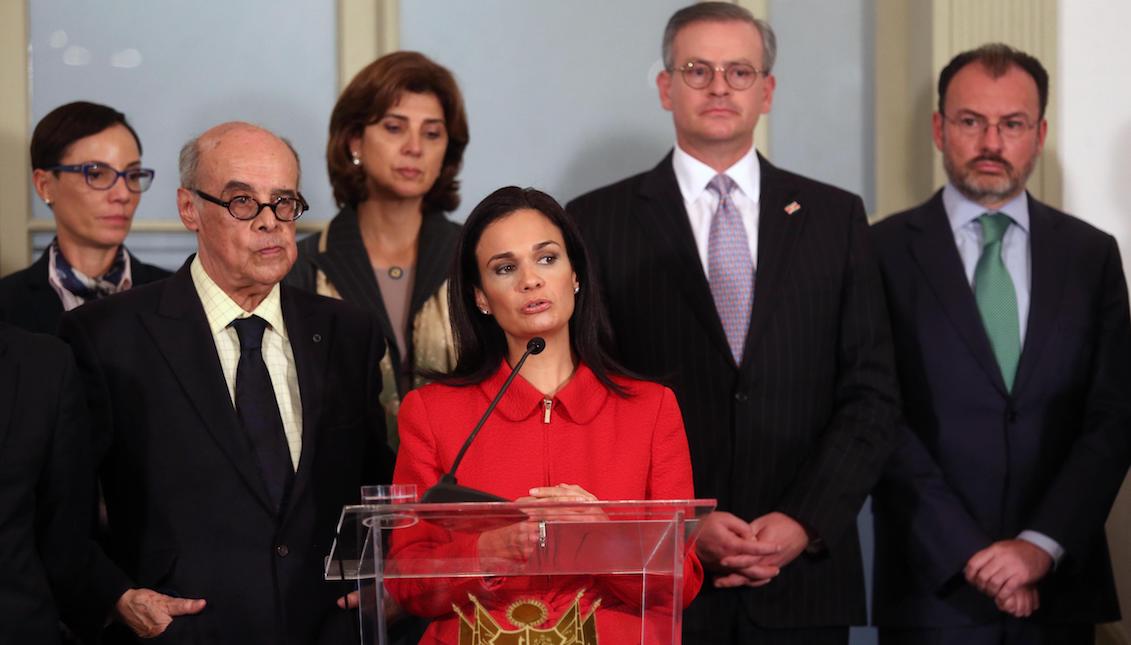
America unites against Maduro
In an extraordinary meeting in Lima, 17 foreign ministers issued an unprecedented statement in which they classify the Venezuelan government as a dictatorship.
Diplomatic representatives of 12 countries in the Americas and the Caribbean subscribed a text under the title Declaration of Lima, stating that Venezuela "is no longer a democracy" and the fraudulent National Constituent Assembly imposed by the leadership of chavismo is "illegitimate ".
The Declaration also condemns the "systematic violation of human rights and fundamental freedoms, violence, repression and political persecution, the existence of political prisoners and the lack of free elections under independent international observation."
The document states in a timely manner that the signatory countries will ignore the National Constituent Assembly and will only consider those acts carried out under the Constitution of 1999 and approved by the National Assembly elected democratically in the elections of 2015.
The countries that signed it were Argentina, Brazil, Canada, Colombia, Costa Rica, Chile, Guatemala, Honduras, Mexico, Panama, Paraguay and Mexico. Representatives from Guyana, Grenada, Jamaica, Saint Lucia and Uruguay attended.
The document is a response to the "superpower" made up exclusively of Chavistas and has taken control of the Venezuelan government, initiating a series of political persecutions that have resulted in the arrest of several opposition mayors, as well as the dismissal of the Attorney General of the Republic, Luisa Ortega Díaz.
To counteract the process, the Lima Declaration seeks to ignore any "Venezuelan candidacy in regional and international mechanisms and organizations", as the South American country "does not comply with the requirements and obligations established by the UN in the field of human rights," BBC.
The signatory countries "expressed their concern about the humanitarian crisis in the South American country and expressed their condemnation of the Maduro government," blaming him for "not allowing food and medicines to enter the country in support of the Venezuelan people."
RELATED CONTENT
Likewise, the coalition of American countries called for "stopping the transfer of arms to Venezuela, based on Articles 6 and 7 of the Arms Trade Treaty."
The representative of the host country, Ricardo Luna, vehemently condemned: "What we have in Venezuela is a dictatorship. This situation has no way out. We have to act. It has broken the democratic order, is a situation incompatible with democracy in this region that cost so much ", according to the newspaper El País.
The strategy of this coalition - which represents most of the continent - is to isolate the regime of Nicolás Maduro, trying to achieve a democratic solution through international pressure, a unique scenario in the democratic history of Latin America.
After the failure of the Organization of American States (OAS) to reach agreement on the Venezuelan crisis, the vast majority of countries in the region that denounce the Venezuelan situation have opted for other diplomatic channels, such as the suspension of Venezuela from Mercosur and now the formation of an independent pact.
This leaves Venezuela isolated in an important way in regional politics, with only the support of Bolivia, Ecuador, Cuba, El Salvador and Nicaragua.
Continuing with the demagoguery that has characterized the Chavista regime for more than a decade, Maduro denounced, "Venezuela is being attacked by imperial factors and Latin American oligarchies," in a cry to justify what is obviously the establishment of a dictatorship of the 21st century.











LEAVE A COMMENT: